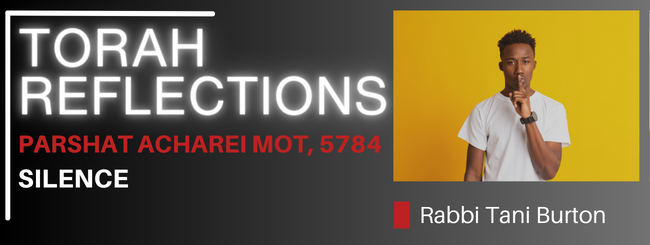בס”ד
Introduction
Explore the ritual of Yom Kippur’s two goats, symbolizing sin removal. Understand its implications on guilt culture vs. shame culture.
Parshat Acharei Mot
Integrating Torah into one’s life through reflection and conversation can be an incredibly fun and engaging experience. It’s a journey of discovery, where ancient wisdom and timeless teachings come to life in our daily experiences. Through reflection, we have the opportunity to dive deep into the rich tapestry of Torah, extracting profound insights and lessons that resonate with our modern lives. The joy lies in the ‘aha’ moments, those instances when a Torah verse or story suddenly connects with our personal challenges, aspirations, and values. And when we engage in conversations about Torah with others, it becomes an interactive exploration, where diverse perspectives and interpretations enhance our understanding. These dialogues often spark excitement and intellectual curiosity, making the learning process both enjoyable and fulfilling. Torah becomes a vibrant and dynamic part of our lives, offering not just guidance but also a source of endless fascination, connection, and growth.
NOTE: Don’t feel obligated to go through every source or answer all the questions—unless you want to. Even one source, or one question will give you plenty of material for discussion and meditation. Enjoy this!
Some thoughts from the parsha
(based in part on an essay by Rabbi Lord Jonathan Sacks, z”l)
The Yom Kippur service, as outlined in Acharei Mot (Leviticus 16:7-22), features a striking ritual involving two goats, one sacrificed and the other sent away into the wilderness “to Azazel.” The goats, chosen for their similarity, undergo a process where lots are drawn, determining their fate. The goat labeled “to the L-rd” is offered as a sacrifice, while the other, representing the sins of the nation, is sent into the wilderness. This ritual, rich with symbolism, raises questions about the meaning of “Azazel” which many of our sages understand as representing the Other Side, i.e. the side of evil. Regardless, the ritual serves to symbolize the removal of sin and guilt, the theme that is central to Yom Kippur.
The significance of the ritual has implications beyond atonement, hinting at the contrast between shame and guilt cultures. Unlike in shame cultures, where the avoidance of shame is paramount, leading to unclear distinctions between right and wrong, Judaism operates within a guilt culture framework. Here, clear distinctions between right and wrong exist, and individuals would rather admit their wrongs than carry the burden of sin. In Judaism, the protection of G-d’s Honor takes precedence over saving face, highlighting a fundamental difference in value systems. This distinction reflects Judaism’s emphasis on both personal and communal accountability.
Now, consider these questions for deep personal reflection and discussion:
- Reflecting on your own experiences, how have you navigated the balance between admitting wrongdoing and avoiding shame?
- Have you ever found yourself prioritizing saving face over acknowledging your mistakes? How did this impact your sense of personal integrity?
- In what ways does your cultural background influence your understanding of guilt and shame, and how does this influence your approach to accountability?
- Can you recall a time when you witnessed someone prioritizing G-d’s honor over personal reputation? How did this resonate with you?
- How might understanding the distinction between guilt and shame cultures enhance your own journey of self-reflection and growth?
Shabbat Shalom!
Shabbat Shalom!
By Rabbi Tani Burton
If you want more questions for contemplation, SEE THE OTHER BLOGS FROM RABBI TANI BURTON ABOUT DE PARSHAT QUESTIONS
© Copyright, all rights reserved. If you enjoyed this article, we encourage you to distribute it further.
Our blogs may contain texts/ quotes/references/links of
Mechon-Mamre.org, Aish.com, Sefaria.org, Chabad.org AskNoah.org
that contain copyrights and which we may use with there permission.
